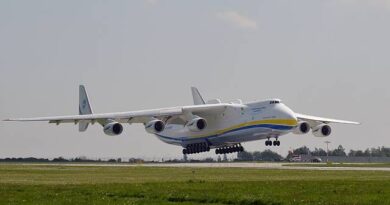Philosophy and Aviation
Philosophy and aviation may seem like two vastly different fields, but they are actually interconnected in various ways. Philosophy deals with fundamental questions about reality, existence, knowledge, ethics, and more. Aviation, on the other hand, is the science and art of designing, building, operating, and maintaining aircraft, as well as navigating through the air. In this article, we will explore some of the philosophical aspects of aviation and how they relate to the wider philosophical discourse.
Human Knowledge and Understanding
One of the most significant philosophical concepts that apply to aviation is that of human knowledge and understanding. Aviation relies heavily on scientific principles and empirical data to ensure the safety and efficiency of aircraft. Engineers and pilots must understand the laws of physics, thermodynamics, and other scientific fields to design and operate aircraft successfully. This aspect of aviation connects with epistemology, which is the study of knowledge and justification. Epistemology investigates how we acquire knowledge, what constitutes justified beliefs, and how we can distinguish between true and false claims. Aviation exemplifies how our understanding of the physical world can be put to practical use, and it highlights the importance of critical thinking and empirical evidence in achieving our goals.

Risk and Uncertainty
Another philosophical concept that relates to aviation is the idea of risk and uncertainty. Aviation involves risks and uncertainties that can affect the safety of passengers and crew. Therefore, aviation experts must evaluate and manage these risks to ensure that aircraft operate safely. This aspect of aviation connects with the philosophy of risk and uncertainty, which investigates how we can make decisions under conditions of uncertainty and how we can balance risks and benefits. The philosophy of risk and uncertainty is crucial in many areas of human life, such as finance, healthcare, and environmental policy.
Aviation also raises ethical questions that connect with moral philosophy. For example, aviation involves the distribution of benefits and harms, and it raises questions about fairness, justice, and responsibility. Aviation companies and regulators must balance the interests of different stakeholders, such as passengers, employees, shareholders, and the wider community. They must ensure that the benefits of aviation outweigh its harms and that the burdens of aviation are distributed fairly. This aspect of aviation connects with the philosophy of ethics, which investigates how we can make moral judgments, what constitutes good and bad actions, and how we can create ethical principles that guide our behavior.
Philosophy of Technology
Finally, aviation connects with the philosophy of technology, which investigates the impact of technology on human life and society. Aviation has transformed the way we travel and communicate, and it has contributed to the globalization of the world economy. However, aviation also has negative impacts on the environment, such as air pollution and climate change. Therefore, the philosophy of technology raises questions about the role of technology in shaping human life, how we can manage the risks and benefits of technology, and how we can create technologies that align with human values and goals.
In conclusion, philosophy and aviation are interconnected in various ways, and they raise important questions about knowledge, risk, ethics, and technology. By exploring these questions, we can deepen our understanding of aviation and its impact on human life and society.
References:
- Bostrom, N., & Sandberg, A. (2009). The Wisdom of Nature: An Evolutionary Heuristic for Human Enhancement. In Human Enhancement (pp. 375-416). Oxford: Oxford University Press.
- Johnson, D. G. (2010). Philosophy, technology and the environment. Techné: Research in Philosophy and Technology, 14(1), 1-13.
- Scalet, S., & Joly, P. B. (2015). The philosophy of risk. Springer.
- Tanesini, A. (2010). An Introduction to the Philosophy of Language. Bloomsbury Publishing.
- Van Aken, J. E. (2012).


